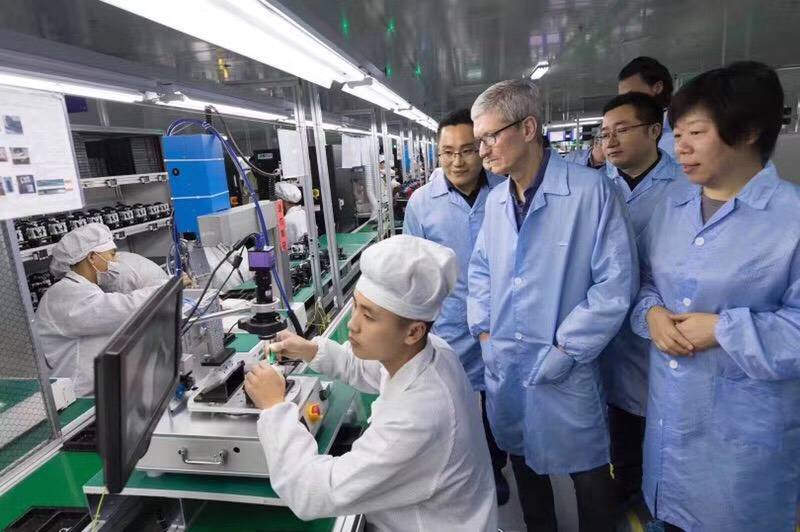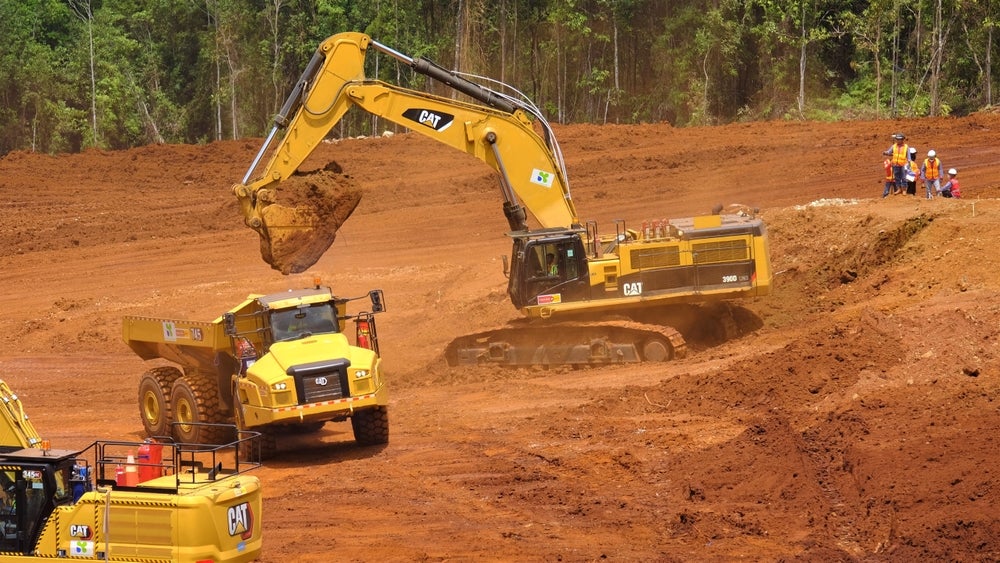
Luxshare Precision Industry, a new key player in the Apple supply chain, has recently broken ground on an 11bn yuan (US$1.72bn) factory in eastern China. The new factory will likely further cement the firm’s role in assembling Apple’s famous hardware.
The Shenzhen-headquartered manufacturer is building a 285,000 square metre plant in Kunshan, in the southeastern Chinese province of Jiangsu. The new factory, spanning an area of 40 football fields, could start delivering iPhones as early as next year, Nikkei Asia reported.
On Wednesday, Luxshare’s shares rose 7.7% to 49.02 yuan (US$7.69) following the news of the new plant.
The announcement marks a further shift in Apple’s supply chain, which is increasingly moving from Taiwan to mainland China. The California tech titan’s supplier list for 2021 showed that, for the first time, Chinese suppliers had overtaken Taiwanese firms in quantity.
Over the past two years, Apple added nine Chinese companies to its supplier list, knocking Taiwan out of the top spot for the first time since the tech giant began publishing the list in 2013.
Currently, Taiwanese-based conglomerates such as Foxconn and Pegatron still dominate Apple’s supply chain in absolute numbers. Apple ships around 200 million iPhones per year, with Foxconn assembling approximately 60%, followed by Pegatron with 30%.
How well do you really know your competitors?
Access the most comprehensive Company Profiles on the market, powered by GlobalData. Save hours of research. Gain competitive edge.

Thank you!
Your download email will arrive shortly
Not ready to buy yet? Download a free sample
We are confident about the unique quality of our Company Profiles. However, we want you to make the most beneficial decision for your business, so we offer a free sample that you can download by submitting the below form
By GlobalDataHowever, Chinese firms are increasingly making their mark on the Cupertino-based tech titan’s supply chain. Luxshare is already an important player in the making of Apple’s AirPods, with its facilities in India and Vietnam.
Earlier this year, the company also won a contract to build 3% of Apple’s latest iPhone 13 model. The firm is expected to win 2.7 million to 2.85 million iPhone orders, based on the reported figures.
According to GlobalData’s deals database, Luxshare bought another facility in Kunshan from Taiwanese tech company Wistron in the summer of 2020, where it currently builds iPhones. With the additional plant, the company is expected to ramp up its iPhone production capabilities from 6.5 million units in 2021 to between 12 and 15 million units by 2022, people familiar with the matter told Nikkei Asia.
“I went on a business trip nearby and saw Luxshare’s new manufacturing complex. I am shocked by the scale of the complex and the possible capacity it could build for iPhones,” an Apple supplier executive told Nikkei Asia. “The day it threatens Foxconn and Pegatron might arrive earlier than people’s estimate judging from the progress of the new facility.”
An executive at another Apple supplier told Nikkei Asia that although this had only been the first year for Luxshare to officially build new iPhones, the company’s assembly performance rate was improving faster than expected, and industry peers should not underestimate it.
Luxshare is seen as a large part of Beijing’s aspirations toward building a domestic contract electronics colossus that can compete with Foxconn. Indeed, Luxshare is the faster-growing tech manufacturer among Apple suppliers regarding its product portfolio.
Apple oversees one of the most complicated consumer electronics supply chains in the world, producing about 200 million iPhones, 20 million MacBooks and tens of millions of AirPods every year.
A combination of geopolitical tensions, chip shortages, power outages and supply chain bottlenecks means that Apple needs to diversify its procurements to better deal with uncertainties. As a result, the tech behemoth has made some changes to its supplier list, showing a stronger focus on mainland China.
In addition to Luxshare, other significant Chinese suppliers to Apple include Wingtech, which recently won a bid to make Apple’s Mac mini and Apple TV. Lens Technology, also from China, will this year begin to provide metal casings for the new iPhone 13. Sunny Optical, the largest camera manufacturer for smartphones in China, joined the iPhone 13 supply chain for the first time to supply rear camera lenses. Finally, BOE will provide OLED panels for the iPhone 13.
“Besides showing that Apple needs to sit on top of such a significant market as China, especially with rising high-end smartphone competition from the likes of Oppo and Xiaomi, it also shows that the alternatives to the Chinese-centred supply chain are simply not in place,” Michael Orme, senior analyst at GlobalData, tells Verdict.
Moreover, it shows that US-based firms are continuing to maintain and even expand production lines abroad, despite ambitions to re-shore supply chains, Orme argues. Apple just moved the last of its US manufacture lines – the Mac – to China, proving the point.
Apple and Luxshare did not immediately reply to Verdict’s request for comment.





